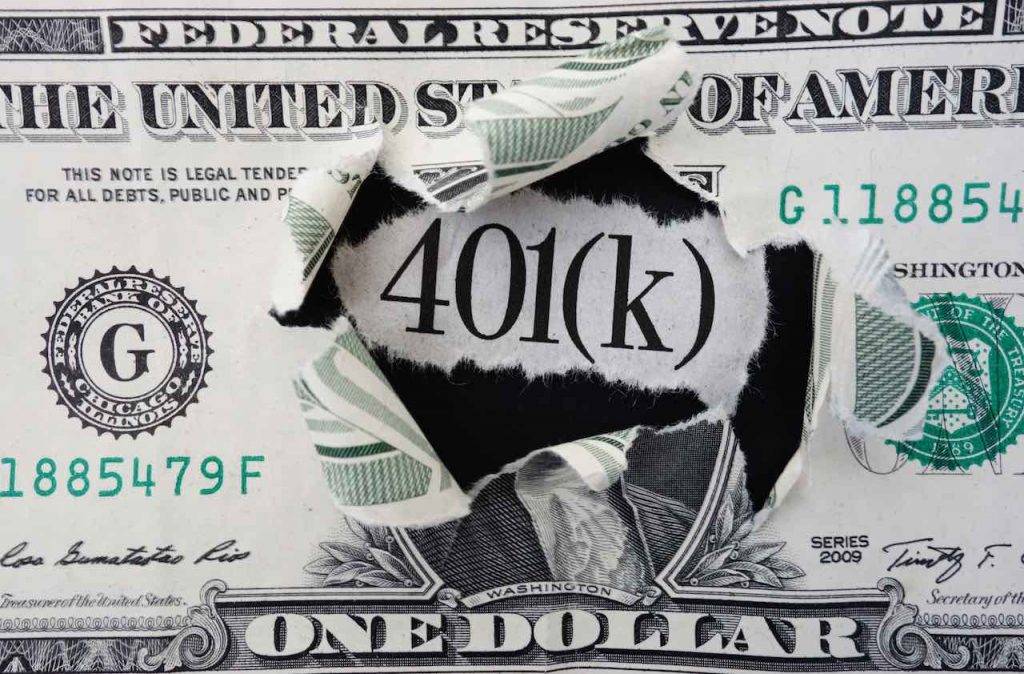An Early Withdrawal From Your 401(k): Understanding the Tax Consequences

If you need money however are attempting to prevent high-interest credit cards or loans, an early withdrawal from your 401( k) plan is a possibility. Nevertheless, before you consider this choice, be forewarned that there are frequently tax repercussions for doing so.
If you understand the impact it will have on your financial resources and want to continue with an early withdrawal, there are two methods to set about it– squandering or taking a loan. But how do you know which is right for you? And what are the tax effects you should be anticipating?
A 401( k) loan or an early withdrawal?
Pension, consisting of 401( k) plans, are developed to assist people in conserve for retirement. As such, the tax code incentivizes saving by offering tax advantages for contributions and usually punishing those who withdraw cash before the age of 59 & frac12.
Nevertheless, if you really need to access the money, you can typically do so with a loan or an early withdrawal from your 401( k)– just remain conscious of the tax ramifications for doing so.
What is a 401( k) loan?
A lot of 401( k) plans permit individuals to obtain their own cash from the plan and repay the loan through automated payroll deductions.
Unlike personal loans and house equity loans, 401( k) loans are generally simple to get. There’s no credit check, and applications are generally short. Nevertheless, they’re like other kinds of financial obligation because you must pay interest on the amount you borrow. Your strategy’s administrator figures out the rate of interest, however, it needs to resemble the rate you’d receive when obtaining cash from a bank. Fortunately though is that you are paying interest to your own 401( k) account.
Normally, 401( k) loans should be paid back within five years. That repayment duration can be extended if you use the loan to purchase a home.
What is a 401( k) early withdrawal?
Normally, anyone can make an early withdrawal from 401( k) plans at any time and for any factor. Nevertheless, these circulations normally count as taxable earnings. If you’re under the age of 59 & frac12, you typically have to pay a 10% penalty on the quantity withdrawn. The Internal Revenue Service does permit some exceptions to the charge, consisting of:
- Overall and long-term disability.
- Unreimbursed medical costs (greater than 10% of adjusted gross earnings in 2020).
- Staff members separated from service at age 55 or older (age 50 for a lot of public security workers) however just from the strategy at the task you are leaving.
Some 401( k) plans enable participants to take difficulty distributions while you are still participating in the plan. Each plan sets its own criteria for what makes up a hardship, but they typically include things like:
- Medical or funeral costs
- Preventing expulsion or foreclosure
- The cost of repairing damage to the staff member’s home
Hardship withdrawals don’t receive an exception to the 10% early withdrawal penalty unless the staff member is age 59 & frac12; or older or gets approved for one of the exceptions noted above.

Which is best for you?
For numerous, 401( k) loans are a better option than early withdrawals. After all, as long as you pay the cashback throughout the required period, you will not have to pay taxes on the quantity withdrawn. Plus, the interest you’ll pay is contributed to your own retirement account balance.
Nevertheless, there are numerous reasons to reconsider before getting a 401( k) loan.
- Decreased paycheck. Many 401( k) plans require participants to repay their loans through payroll deductions. When you borrow from your 401( k), your monthly take-home pay will be minimized by the loan quantity. If you’re already having financial problems, a reduction in your take-home income might worsen your difficulties.
- Missed out on retirement contributions and company matching. Some plans do not permit participants to make 401( k) contributions while they have a loan outstanding. If it takes you five years to repay your loan, that could suggest 5 years without saving for retirement. Plus, if your company matches your contributions, you’ll miss out on matching contributions too.
- Missed out on financial investment returns. While your cash is loaned out, it’s not purchased the market. You could potentially make a better rate of return if it was invested in your 401( k) strategy.
- Costs. Lots of plans charge origination costs and/or quarterly maintenance charges on loans. This can drastically increase the expense of obtaining money from your 401( k).
- Prospective tax effects. If you leave your task while you have a 401( k) loan impressive, you have a limited amount of time to pay back the loan. You have up until the due date for submitting your tax return (consisting of extensions) to repay the loan or roll it over into another eligible pension.
For example, if you left your task in December of 2018 and had a $2,000 outstanding balance on your loan, you would have till April 15, 2019 (or October 15, 2019, if you extended your income tax return) to pay back $2,000 completely.
- If you’re not able to repay the loan, your company will treat the overdue balance as a distribution.
- Typically, it will be thought about gross income and topic to the 10% early withdrawal penalty.
Ideally, you want to leave your 401( k) alone until retirement. However, if you discover yourself in a really hard area, obtaining from your 401( k) might be a better option than simply squandering your balance. Just make sure you comprehend the potential effects and do what you can to pay back the balance quickly so you can start restoring your retirement savings.






